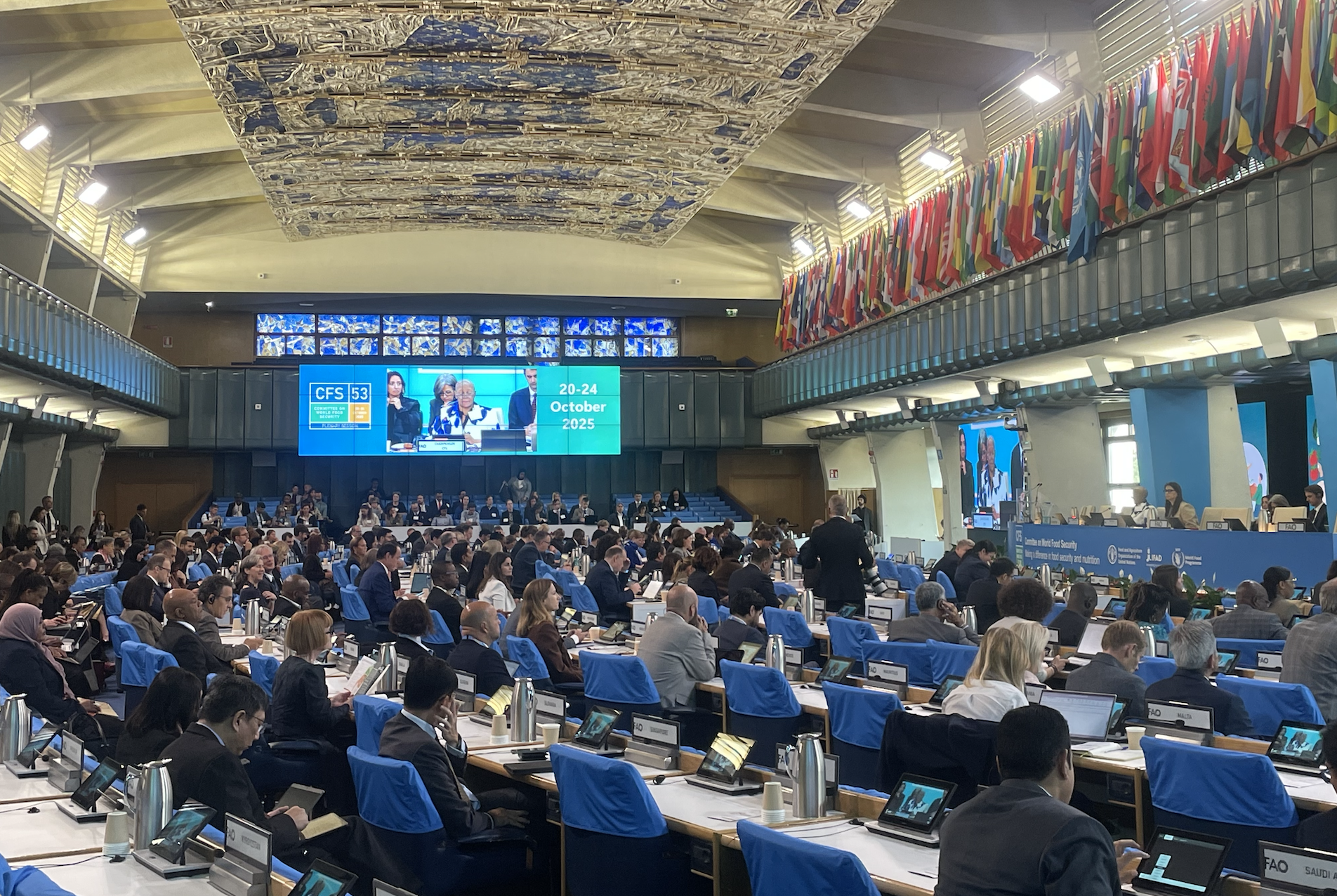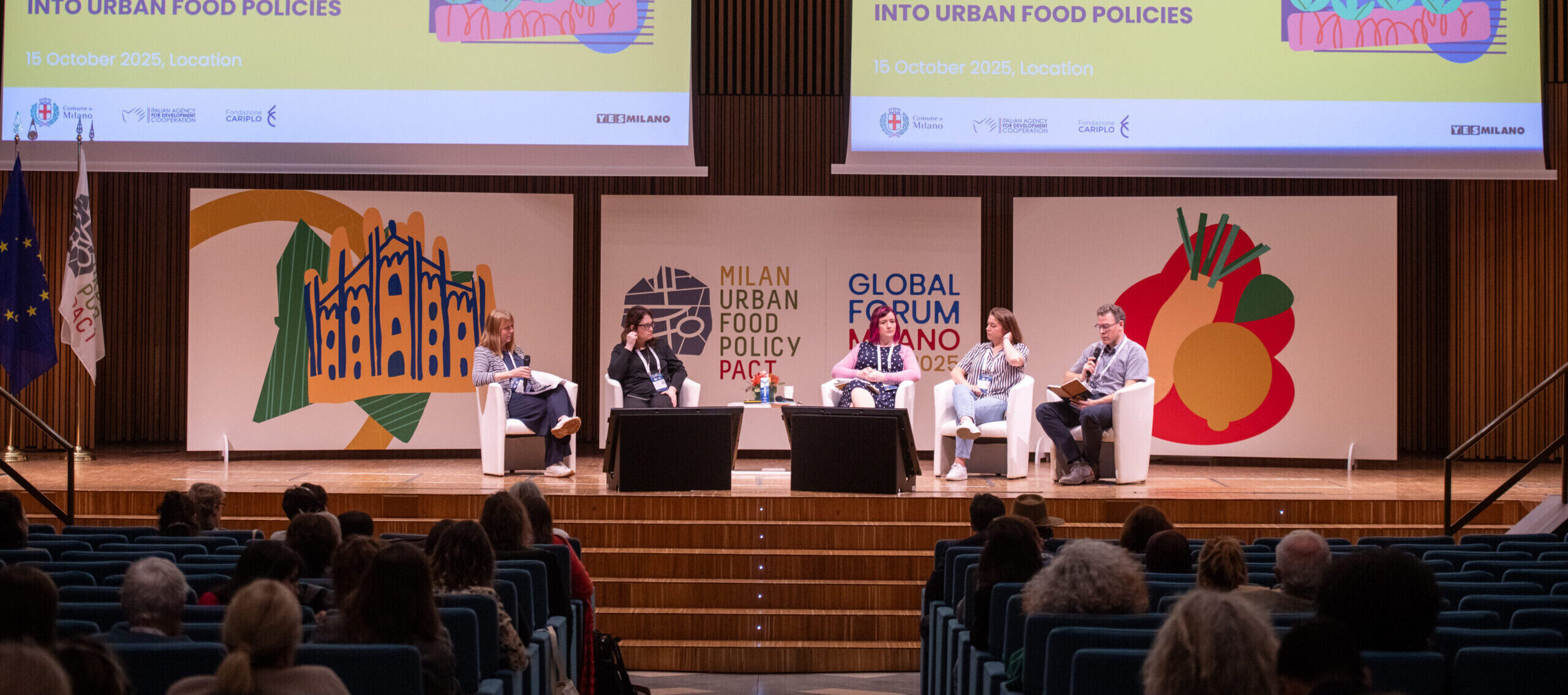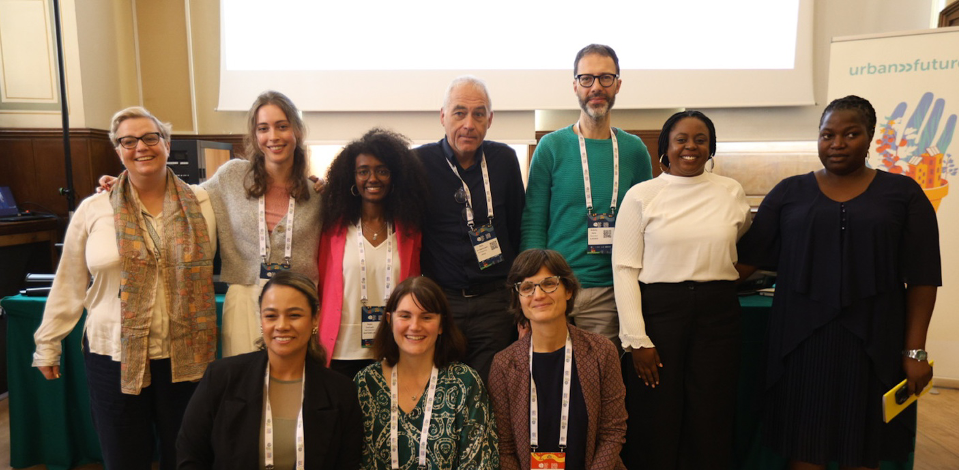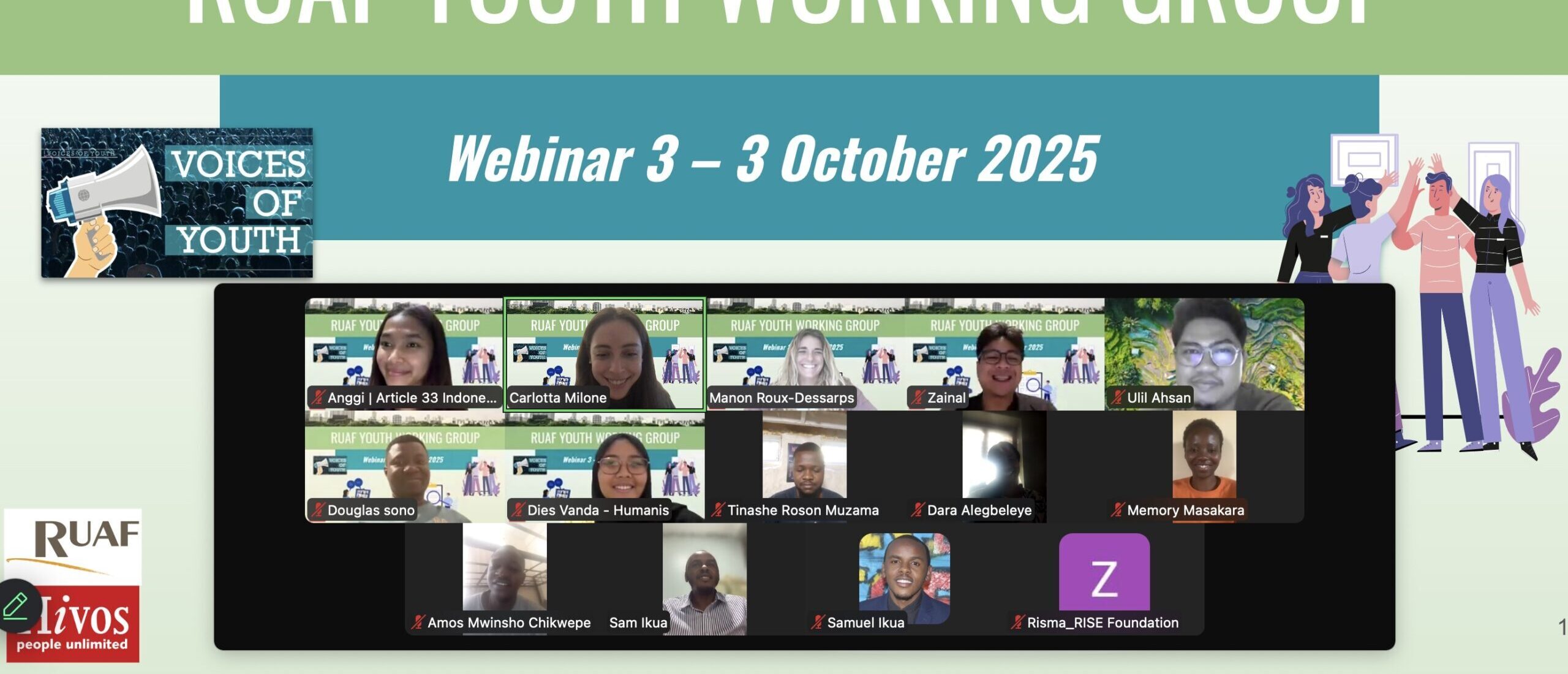Blogpost by Manon Roux-Dessarps
The RUAF Global Partnership on Sustainable Urban Agriculture and Food Systems has formed the RUAF Youth Working Group, with the first two meetings supported by the Hivos-led Urban Futures programme.
The RUAF Youth Working Group (YWG) serves several purposes. It establishes a youth voice within the RUAF GP to help shape priority work themes and development of joint projects between partners.
It also provides an opportunity for all attendees to raise issues or difficulties with an expert peer network from different parts of the world, for collective analysis and problem-solving. In particular, it helps disseminate the Urban Futures approach and experiences, and exposes Urban Futures youth partners to experiences and perspectives of young people working on urban food systems in other projects and contexts.
“RUAF YWG brings together the minds of young and experienced people working in urban food systems in different regions of the world to discuss challenges and propose actionable solutions in areas of common interest to youth, to foster youth-friendly food systems locally and globally,” said Sam Ikua, convener, RUAF YWG.
On 15th July 2024, the first of two online meetings was held to promote youth participation, broaden membership, enhance youth influence, and disseminate the Urban Futures approach. The target audience included representatives from RUAF partner organizations under the age of 35 and Urban Futures youth partners from various cities.
Participants included 27 individuals from Asia (eg. Indonesia, Vietnam), Africa ( eg. Burkina Faso, Zambia, Zimbabwe), Latin America (eg. Peru, Guatemala, Ecuador), and various food system associations and organizations such as Rikolto, Hivos, IWMI, KEHATIRISE Foundation, and PAMPHLET Research Institute.
Priority themes determined by a collaborative process through a questionnaire
A preliminary questionnaire was circulated before the webinar, which revealed the following themes as most relevant:
- Youth action in urban food systems (95%)
- Youth engagement in policy and decision-making (85%)
- Affordable financing for youth initiatives in urban food systems (80%)
- Youth and technology in urban food systems (70%)
Webinar agenda
The webinar began with participant introductions and an overview of the priority themes. Attendees were then divided into three breakout rooms on: Youth action in urban food systems; youth engagement in policy and decision-making; and affordable financing for youth initiatives in urban food systems. Each group engaged in in-depth discussions on one specific theme, sharing insights and brainstorming solutions. In the plenary session, participants reconvened to present their findings, highlighting key challenges and proposing actionable strategies, thereby enriching the collective understanding and setting the stage for future actions and discussions.
Key takeaways from the plenary discussion
- Theme I: Youth Engagement in Policy and Decision-Making
|
Challenges |
Details |
| Exclusion from political roles & from decision-making bodies | Decision-making bodies and government agencies often exclude youth groups, even when policies directly impact them. This exclusion denies young people the chance to influence decisions that affect their lives. |
| Lack of information access | Youth frequently lack access to information on how to engage with government and policy-making processes. This includes not knowing where to find relevant information or how to navigate complex bureaucratic systems. |
| Lack of Institutional support and commitment | There is often a lack of support from institutions and a lack of commitment from decision-makers to genuinely involve youth. This includes a need for environments that foster knowledge development and provide opportunities specifically tailored for youth engagement. |
| Inadequate platforms | There is a shortage of effective platforms that allow young people to actively participate in policy discussions and decision-making processes. |
| Fear of speaking up | Many young individuals are afraid to voice their opinions, fearing repercussions or not being taken seriously by older decision-makers. |
|
Solutions |
Details |
| Capacity building | Implement education and training programs to build the capacity of youth in understanding policy processes, including areas like the food system. This should also extend to training for government officials and decision-makers on how to effectively engage with youth. |
| Partnerships and collaboration | Foster partnerships with youth-led organizations and other stakeholders to increase youth voices and create more opportunities for engagement. |
| Creating safe space & inclusive and accessible platforms | Establish safe and inclusive environments where youth can freely express their opinions without fear of judgment or repercussion. These platforms could be used to engage in discussions and decision-making processes. |
| Mentorship programmes & intergenerational collaboration | Establish mentorship programmes where experienced professionals guide and support youth in their journey to becoming more involved in policy and decision-making processes. |
| Amplifying youth Voices | Actively amplify youth voices and narratives by incorporating their solutions and recommendations into decision-making processes. Ensure their contributions are respected, heard, and integrated. |
| Utilizing technology and social media | Leverage technology and social media to create collective actions and drive change. These tools can be powerful in organizing and amplifying youth-led initiatives. |
| Continuous monitoring and evaluation | Implement continuous monitoring and evaluation frameworks to assess the effectiveness of youth engagement strategies. This ensures that youth engagement remains dynamic and responsive to feedback. |
-
Theme II: Youth Action in Urban Food Systems
|
Challenges |
Details |
| Lack of appeal | Working in the food system is not seen as “cool” or aspirational for young people. |
| Social stigma | There is negative social stigma associated with working in the food system, including parental disapproval of careers in agriculture. |
| Lack of rewards and appreciation | The perceived lack of immediate rewards, profits, and appreciation makes agriculture less attractive to youth. Agriculture is viewed as time-consuming work, which dissuades many young people from considering it as a career. |
| Competition with urban jobs | Urban office jobs are seen as more desirable and competitive compared to agricultural work |
| Resource limitations | Limited access to essential resources such as labour, land, machinery, capital, capacity building, and services hampers interest in the food system sector. |
|
Solutions |
Details |
| Advocate for social security | Provide social security measures such as insurance, subsidies, or basic income for those working in the urban food system to reduce their vulnerability and risk. |
| Promote supportive policies | Develop and implement policies that support the production, distribution, and commercialization of urban food system products. These policies should help young people create enterprises, promote a circular economy, and facilitate transformation within the urban food system |
| Utilize social media: | Leverage social media platforms to promote urban food systems, including innovations like smart agriculture, to reach and engage young people effectively. |
| Provide financial and entrepreneurial skills | Equip youth with essential financial, entrepreneurial, and other skills needed to succeed in the urban food system sector. |
| Increase knowledge and awareness | Enhance the knowledge and awareness of young people about the importance and potential of the urban food system through education and information campaigns. |
-
Theme III: Affordable Financing for Youth Initiatives
| Challenges | Details |
| Lack of information access | Difficulty in obtaining information about available financing options. |
| Complex financing requirements | The extensive and time-consuming process of meeting all the requirements of financiers, including the need for guarantees and navigating bureaucratic hurdles. Even if financing is granted, the terms may be high and unaffordable. |
| Low level of associativity | Weak associations and networks, making it difficult to find markets and access financing that often requires a high volume of production. |
| Challenges in business planning | Difficulties in creating robust business plans, which are essential for accessing financing. |
| Resource limitations | Limited access to essential resources such as labour, land, machinery, capital, capacity building, and services hampers interest in the food system sector. |
| Employment-based credit access | In some countries, credit access is restricted to those with a work history or formal employment, excluding many potential entrepreneurs in the urban food system sector. |
| Solutions | Details |
| Capacity development | Develop the capacities of young people to create solid business plans. This will help them convincingly demonstrate their ability to access and manage funding effectively. |
| Act as mediators for new credit products | Establish mediators who can create and promote new credit products tailored to meet the specific needs of young people, making financing more accessible. |
| Provide initial funds | Ensure the availability of initial funds such as seed capital, angel funds, and non-returnable funds from the state or impact financiers. This initial funding can help kickstart ventures and demonstrate viability to larger financial institutions. |
Next steps
The RUAF Youth Working Group’s first webinar successfully identified and discussed key themes impacting youth engagement in urban food systems. The insights and strategies proposed will serve as a foundation for empowering youth in food systems governance. The next webinar in September will focus on success stories and case studies related to the discussed themes. This ongoing engagement aims to ensure the active participation and influence of youth in shaping sustainable food futures.







